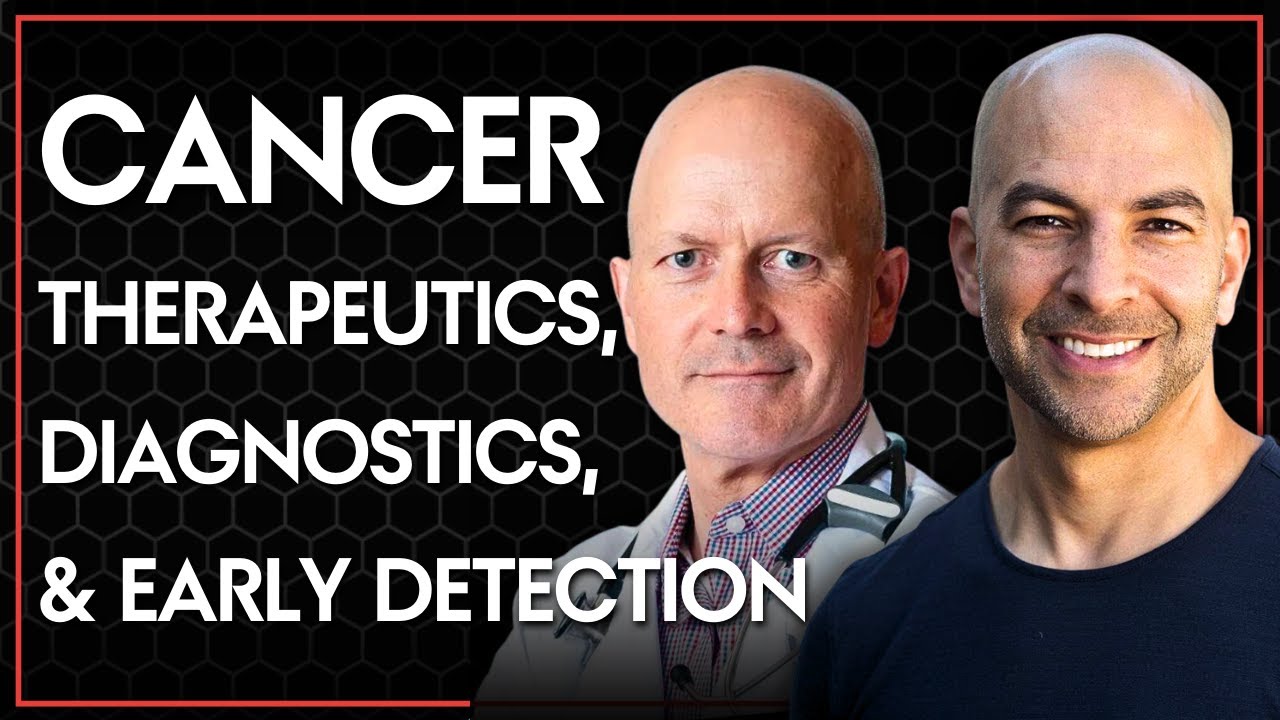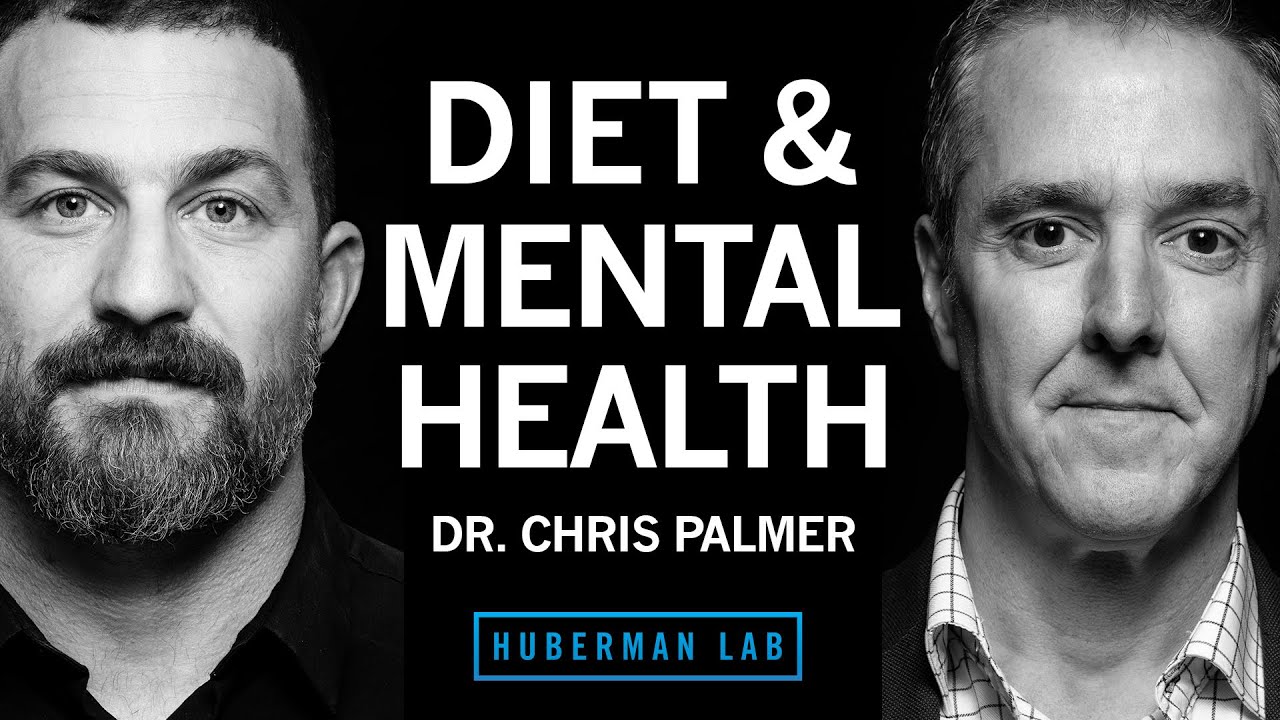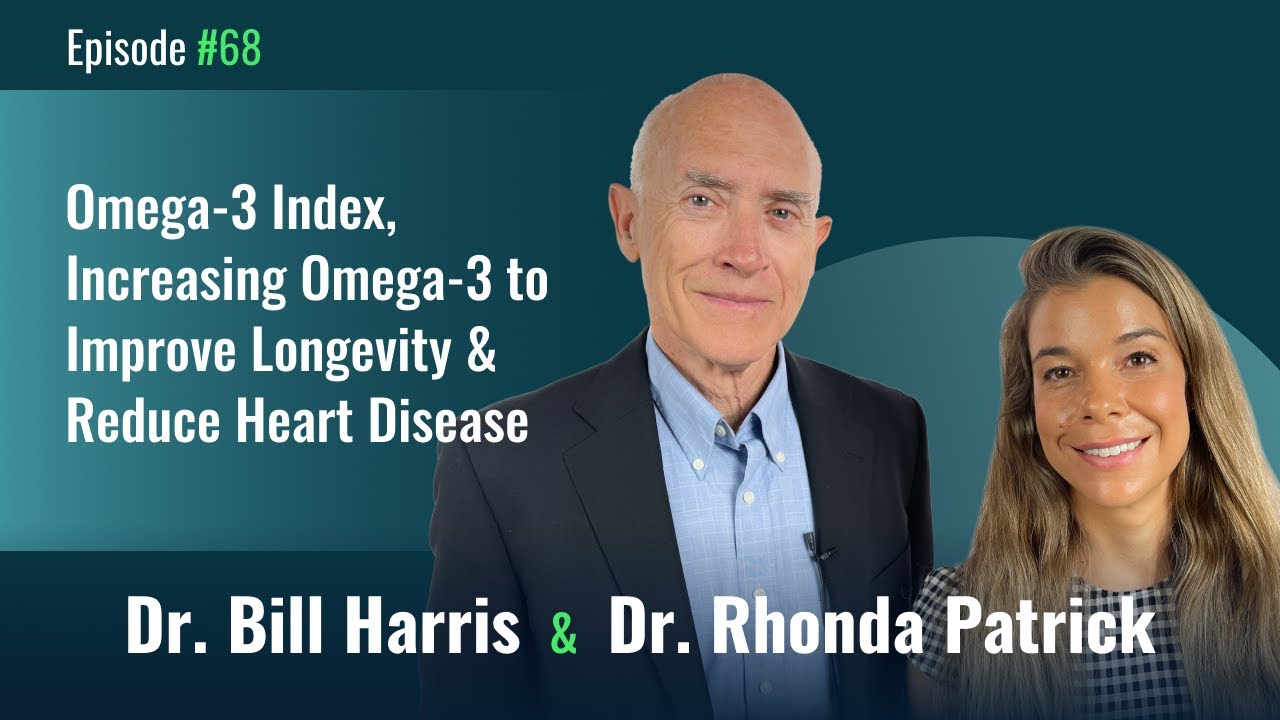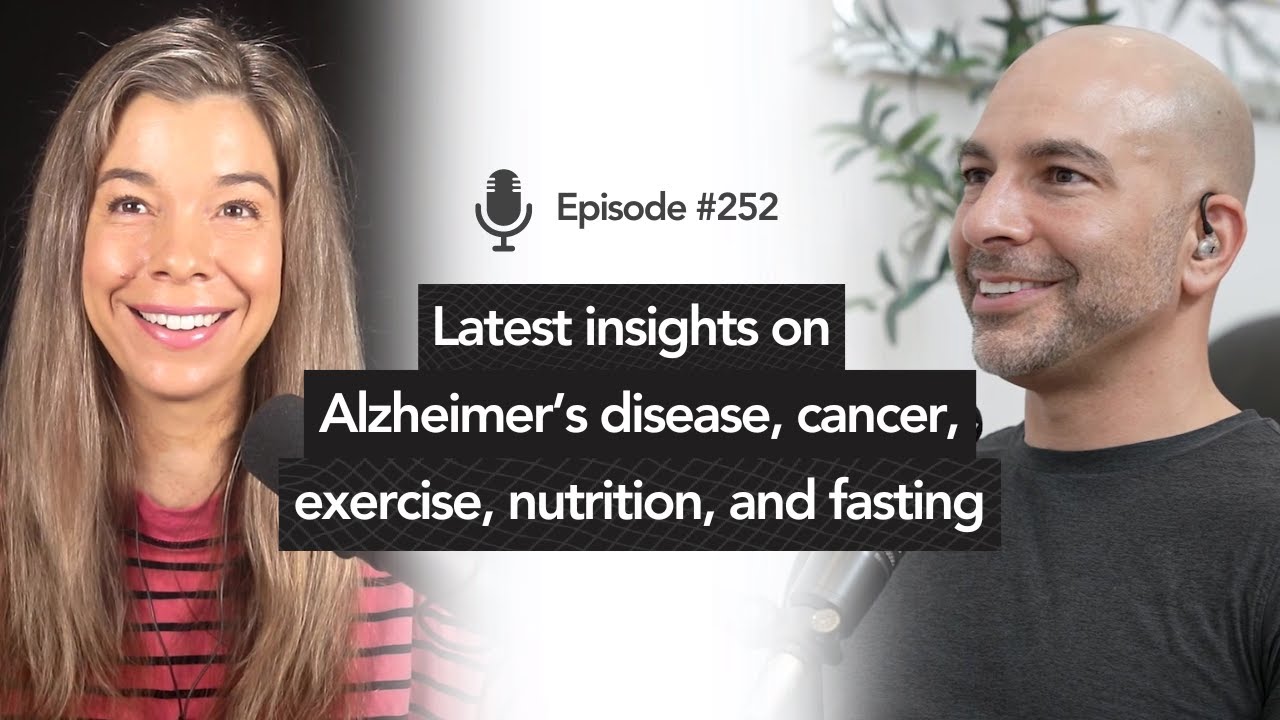- Understanding the genetic probability of inheriting ADHD and the importance of seeking a specialist for diagnosis.
- Debunking misconceptions about the link between ADHD and intelligence.
- Exploring how a combination of alternative treatments like dietary intervention, supplements, and emerging technologies can enhance attention and information retention in children and adults, whether they have ADHD or not.
- Unveiling the controversy around using amphetamine-based medication to relieve ADHD symptoms in children.
- How physical activity and controlled movements (e.g. fidgeter toys) can help people, especially children with ADHD, to focus.
- The impacts of chronic cannabis use and open-monitoring meditation on ADHD.
- The influence of smartphones on attention spans and inducing ADHD-like symptoms.
ADHD & How Anyone Can Improve Their Focus
ADHD & How Anyone Can Improve Their Focus
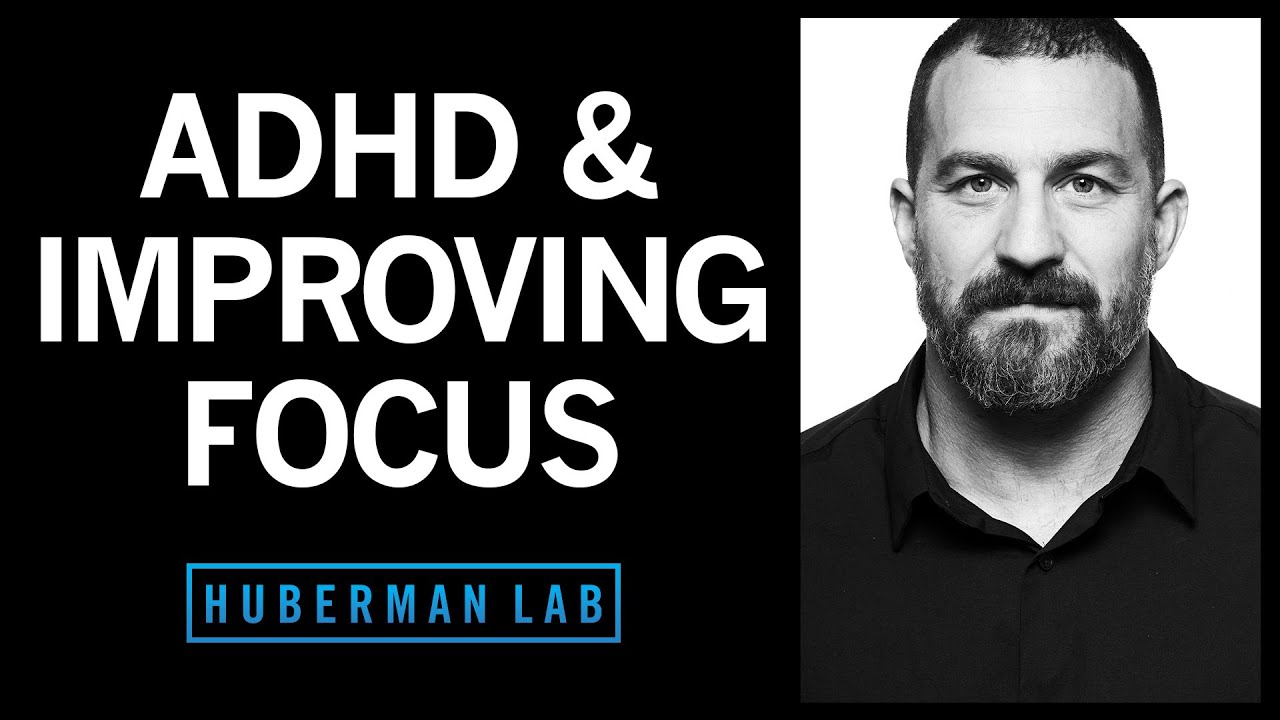
- Prioritise a balanced diet with a focus on whole foods, cutting down on high-sugar and simple-sugar foods, and identifying potential food allergies.
- Dedicate 15-20 minutes to interoceptive meditation daily, focusing on your breath and gently refocusing when your mind drifts in order to reduce attention lapses.
- Embrace controlled fidgeting, such as tapping a foot or using fidgeter toys, or physical movements during tasks to release excess neural activity and enhance focus.
- Be mindful of excessive smartphone use and try to set limits on screen time, since frequent context switching can erode your ability to concentrate.
- Take supplements like omega-3 fatty acids (300 milligrams of DHA and 1000 milligrams of EPA per day) and Phosphatidylserine (200 milligrams per day) to support cognitive function and improve ADHD symptoms.
- If available and recommended by a medical professional, consider transcranial magnetic stimulation (TMS) sessions as a method to stimulate specific brain areas and improve task-directed focus and attention.
Do I have ADHD?
Amidst our busy and ultra-stimulated modern lives, staying focused and attentive is no easy task. This can be challenging for anyone. But it becomes even more difficult for those suffering from Attention Deficit Hyperactivity Disorder (ADHD) — a neurodevelopmental condition characterised by symptoms like inattention, hyperactivity, and impulsivity.
ADHD is believed to affect 1 in 10 children, and the number of diagnoses in the adult population is increasing, too. That’s the bad news. The good news is that there is a range of strategies beyond traditional medication for enhancing attention and focus, whether one has ADHD or not.

Source: https://www.olympiatherapy.com/post/could-it-be-adhd
But before we proceed, let’s get two things clear.
First, having a close relative with ADHD increases the likelihood of inheriting the condition (if one of your parents has ADHD, the probability ranges from 10 to 25%). Nevertheless, even if symptoms seem obvious, only a specialist can give a formal diagnosis.
Second, ADHD is not indicative of a person’s intelligence or IQ. While people with ADHD often struggle with short-term “working memory,” they can also exhibit periods of intense focus on tasks they find engaging or interesting, known as hyperfocus.
Medication & ADHD
Dopamine levels play a significant role in attention deficits seen in ADHD; low dopamine levels disrupt concentration. Although controversial, amphetamine-based medications like Adderall and Ritalin can help alleviate ADHD symptoms by adjusting dopamine transmission and aid in improving focus — especially in early intervention for children. You see, the brain isn’t set in stone; it’s remarkably adaptable, particularly in the developmental years. So by understanding the neuroplasticity of young brains, parents can take proactive steps to support their children’s focus and development.
Various supplements and compounds could also aid in managing ADHD symptoms and enhancing focus. L-Tyrosine, an amino acid precursor to dopamine, and compounds like Phenethylamine (PEA), an organic compound found naturally in plants, bacteria, fungi, and animals are some of the most popular. Racetams have also shown the potential to offset cognitive decline in conditions involving brain concussions or vascular damage.
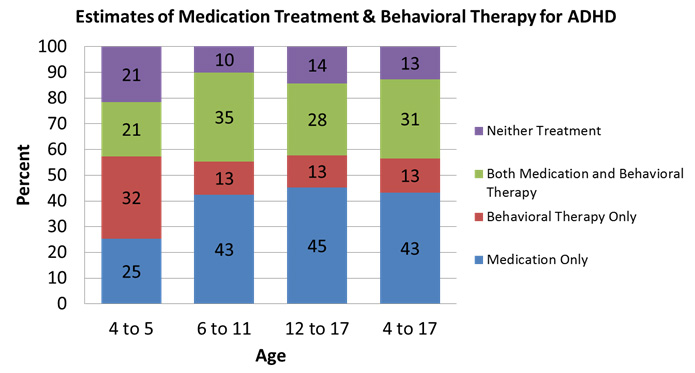
Source: https://www.cdc.gov/ncbddd/adhd/features/adhd-data-graph-longdesc.html
The Role of Diet in ADHD
Diet is also a big part of the ADHD picture. Dietary interventions such as elimination diets (excluding specific foods and/or reducing sugar intake) have proven promising. Customised diets based on mild allergic responses can also significantly improve focus and quell restlessness.
Incorporating omega-3 fatty acids in your diet is another way to enhance concentration and cognitive function. These essential nutrients, found in fish oil and other sources, are believed to potentially complement ADHD management and even reduce reliance on medication.
Still, even though diet seems to play an integral part in the focus-enhancing equation, it’s a puzzle piece that needs to be fit alongside other approaches.
The Physicality of ADHD
Blinking — a seemingly simple act — can have profound implications for attention. Attentional blinks, those fleeting moments of mental shutdown, are often linked to ADHD. People with ADHD might experience more attentional blinks, which leads to over-focusing on certain aspects while inadvertently missing others.
Some people experiment with “open monitoring” and “interoceptive meditation,” techniques that involve widening one’s gaze and focusing on internal sensations like breathing. These practices seem to reduce attention lapses and bolster focus, potentially benefiting both individuals with ADHD and those looking to enhance their cognitive performance.
Another surprising correlation between ADHD and physicality is the role of fidgeting and movement in enhancing focus. Engaging in physical movements and fidgeting can enhance focus for children and adults with ADHD. Physical activity helps divert nervous system activity and allows for better concentration on tasks.
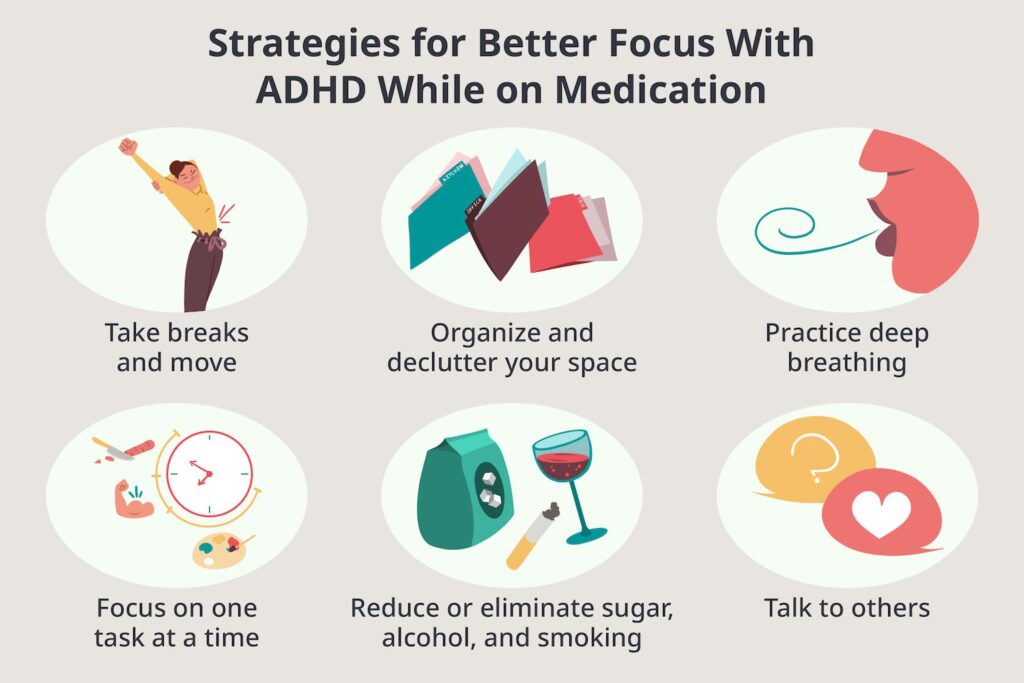
Source: https://www.verywellhealth.com/how-to-focus-with-adhd-habits-to-start-right-now-5208587
Technology & ADHD
In an era dominated by screens, digital distractions pose a big challenge to maintaining focus. Some research suggests that excessive smartphone use can induce ADHD-like symptoms due to the constant context-switching and information overload they provide. Yet simple things like limiting screen time and meditating daily can help people regain control over their attention span.
One of the most promising technological methods for developing focus and attention is transcranial magnetic stimulation (TMS) — a non-intrusive technique that stimulates the prefrontal cortex and improves task-directed focused states. Although relatively new, this approach is being compared to traditional drug treatments in clinical trials.
The pursuit of focus is a multi-faceted journey. It’s not an easy path, and there are no quick fixes. But by combining technology, pharmacology, and behavioural patterns, people can achieve optimal results in managing ADHD symptoms and enhancing cognitive performance.
